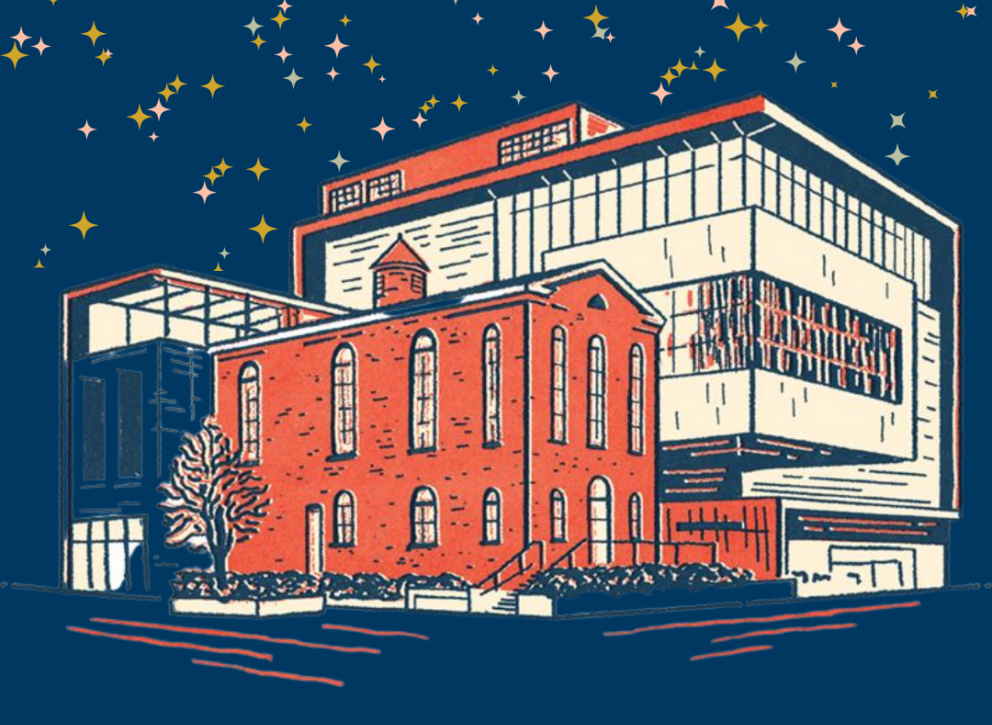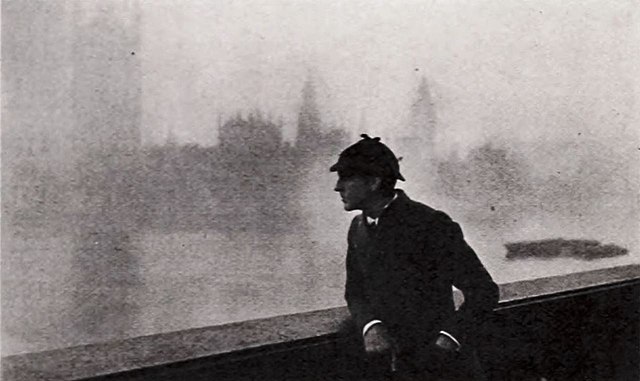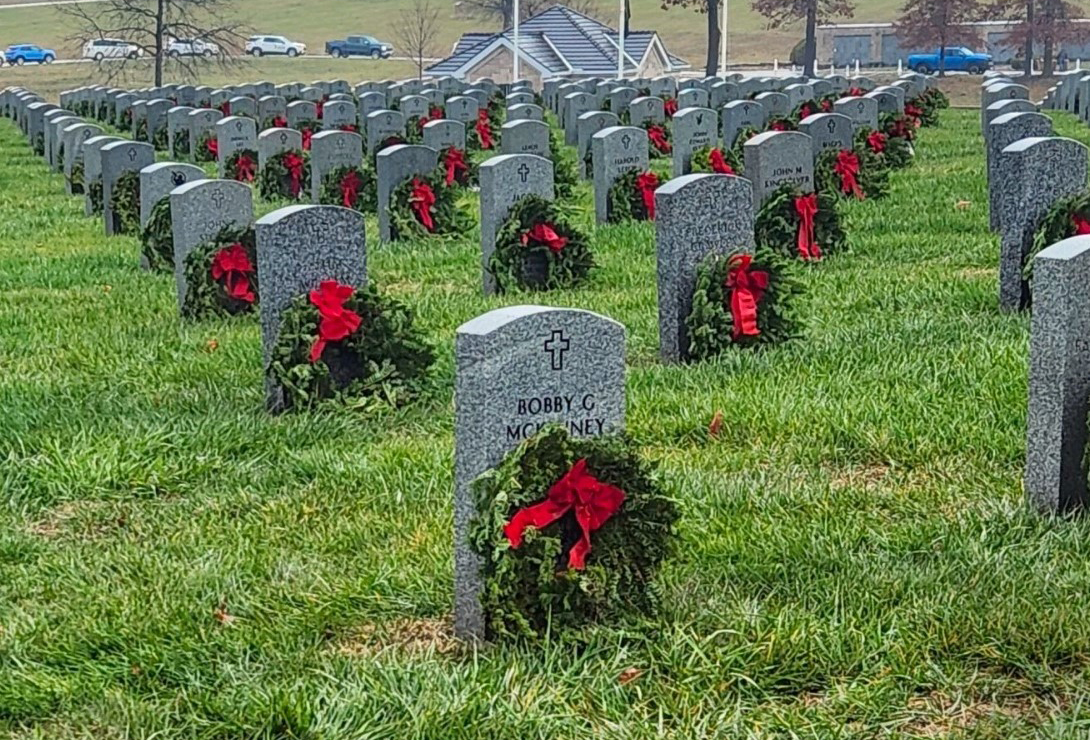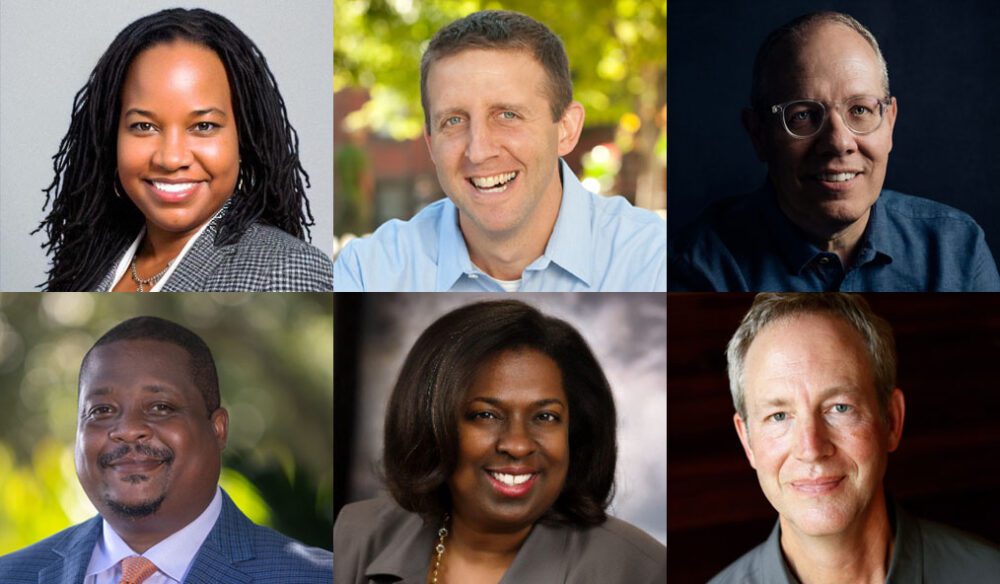The holiday season is an important time for making meaning and bonding with friends, families, and neighbors over the diverse cultures and holiday traditions celebrated across the country. Each year, state and jurisdictional humanities councils contribute to this meaning-making and enrich their communities’ holiday experiences—through their own programming and by funding state-wide public humanities programs and events.
Here are just a few ways humanities councils and their grantees are marking the holidays this year:
Wreaths Across America: Honoring Veterans in Missouri
Every December, the national organization Wreaths Across America unites communities nationwide to honor, remember, and teach through the powerful act of laying wreaths on veterans’ graves. This tradition pays heartfelt tribute to those who served and sacrificed for our country.
This year, Missouri Humanities partnered with Wreaths Across America and recruited 559 volunteers across Missouri to participate in this special event. Council staff joined other volunteers and laid wreaths at Missouri Veterans Cemetery in Higginsville and Jefferson Barracks National Cemetery in St. Louis.
This event was part of Missouri Humanities’ ongoing effort to interpret, preserve, and share the stories of Missouri veterans. On Thursday, January 23 they will host a live online reading and roundtable discussion featuring original works by veterans, service members, and military-connected family members, as published in volume 13 of “Proud to Be: Writing by American Warriors.”

Luminarias: Reflecting on New Mexican Christmas Tradition
The New Mexico Humanities Council recently reshared an essay on their website by Leeanna Teresa Martinez y Torres about the traditional paper bag lanterns called luminarias or farolitos. Here’s a short excerpt:
“Throughout much of New Mexico, luminarias are visually recognized as the symbol of the Christmas season. They are as simple as much as they are defining and unique – a paper bag, a few inches of sand inside, and a single stout candle inside the bag. What results is a small lantern of sorts, a symbol of welcoming the Divine into our physical world…
I will make, and put up, luminarias with my niece Concí and nephew Eppy. Then we will assemble them around the house, along the adobe walls, out along the driveway.
I think too about this idea of preparation, these small actions and intent that go along with so many of our traditional NM celebrations. Of course there are larger family gatherings, dinners, Masses, all the varuio (commotion) of the holidays, but something in me is deeply content with my smaller tradition of little brown paper bags and candles.”
Enjoy the full essay on the New Mexico Humanities Council website.

Celebrating Hannukah in Washington, DC
Humanities councils are, by their nature, deeply enmeshed in their larger regional arts and culture communities. They often promote events and programs put on by sister organizations. In the nation’s capital, DC Humanities‘ community calendar for December included a Hanukkah event at the Capitol Jewish Museum (a past recipient of DC Humanities funding). At “CJM After Sunset: Light Up the Night” attendees enjoyed olive oil martinis, competed in a dreidel tournament, experienced an olive oil tasting, heard pop-up spotlight talks with Museum curators, and made their own wrapping paper for the best dressed gift under the menorah.

Red Carol: Revisiting a Classic in California
The San Francisco Mime Troupe received a grant from California Humanities to support Red Carol: A Public Humanities Experience on Social Justice and Empathy, which runs from Dec 14-19 at the Z Space in San Francisco. The pioneering collective transformed Charles Dickens’ A Christmas Carol into a vibrant exploration of contemporary socio-economic issues. In this reimagined classic holiday tale, six people play all the roles as the play draws on the historic novels existing themes to addresses modern issues of inequality, labor rights, and economic justice.
Each performance of Red Carol will be followed by a facilitated discussion led by humanities scholars, inviting audiences to reflect on themes of empathy, civic responsibility, and social justice. This project fosters community dialogue, encourages critical thinking, and connects the play’s timeless message to the contemporary challenges facing Californians today.
You can read more about the project on California Humanities’ blog.

Exploring Historic Christmas Traditions in Kentucky and South Carolina
At Blackacre Nature Preserve & Historic Homestead in Louisville, funding from Kentucky Humanities supported their Candlelight Homestead Tour on December 21. Attendees will enjoy seeing 19th-century Christmas decorations at the site’s 1844 Presley Tyler House, learn about Christmas traditions from that era, and then step back in time to experience pioneer-era music and dancing in the site’s 1795 Stone Cottage.
South Carolina Humanities funded a storytelling event by the Stone Soup Storytelling Institute called “LISTEN! Revolutionary Stories: A Revolutionary Christmas.” In a time before Dickens’ A Christmas Carol, before Santa Claus wore red, before the widespread popularity of the Christmas Tree, and before department stores or the “Black Friday” shopping mayhem, how did colonists celebrate their religious holidays? Did the war change how people celebrated? What would we recognize? What would be foreign to us? This event answers those questions, exploring holiday events, traditions, and stories during the American Revolution.

A Mysterious Christmas in North Dakota
North Dakotans tuned into a free online event from Humanities North Dakota, a reading of Author Conan Doyle’s Christmas-themed Sherlock Holmes story by professor and playwright Jamieson Ridenhour.

Chinese New Year Activities & Interfaith Reflection in Connecticut
One of Connecticut Humanities‘ signature initiatives is Book Voyager, which puts on programs designed to promote the joy of reading and encourage families to create literature-rich home environments. At the end of January, a free Book Voyager event celebrates the Chinese New Year through a Chinese calligraphy workshop.
Many holidays are connected to faith traditions, and Connecticut is kicking off 2025 with an inter-faith discussion on what it means to be human and different faiths’ beliefs on January 2. The panel includes leaders from three local institutions: a Christian church, a Jewish congregation, and a Muslim center.
What are Humanities Councils?
The 56 state and jurisdictional humanities councils are independent, nonpartisan, nonprofit organizations supporting grassroots humanities programs and community-based activities. Humanities councils were created by Congress in the early 1970s and receive an annual congressional appropriation through the National Endowment for the Humanities (NEH), which most councils supplement with private funding. To find your humanities council, visit www.statehumanities.org/directory.


